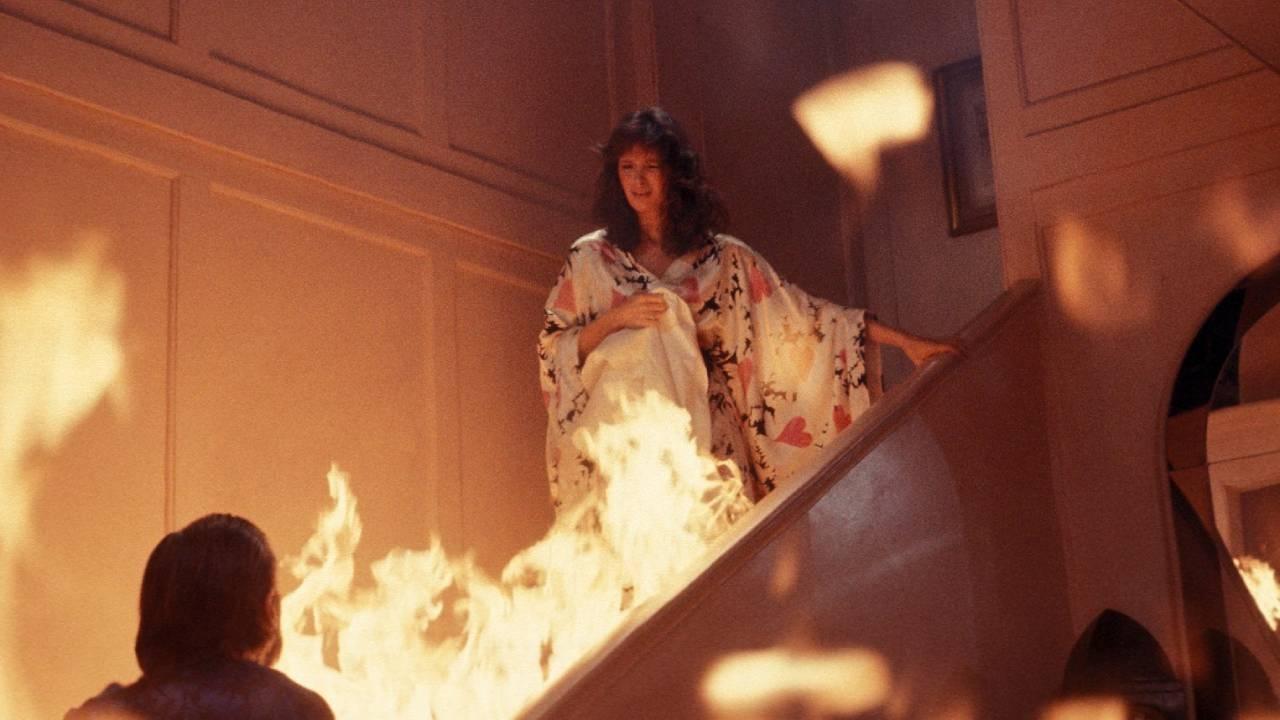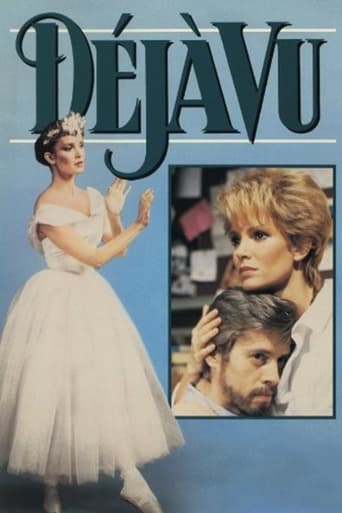

i know i wasted 90 mins of my life.
... View MoreDon't listen to the negative reviews
... View MoreIt is not deep, but it is fun to watch. It does have a bit more of an edge to it than other similar films.
... View MoreIt's a movie as timely as it is provocative and amazingly, for much of its running time, it is weirdly funny.
... View MoreMiscast, misbegotten film-version of Trevor Meldal-Johnsen's novel "Always", produced by Golan-Globus for Cannon Films as if it were a rank television production. British novelist in the present day is initially fascinated by--and then quickly obsessed with--a deceased prima ballerina from the 1930s who bore a striking resemblance to his current fiancée. A Russian hypnotist (named Olga Nabokova!) takes the man back fifty years, where he discovers he himself was the dancer's lover. One wonders to whom this movie was supposed to appeal; even harlequin romance buffs might expect a little sex and intrigue. This poorly staged, ineptly judged reincarnation-mystery is unusually tame for an R-rated feature (stars Nigel Terry and Jaclyn Smith share numerous scenes in bed--with barely a flash of skin between them). Terry, a thin actor with a huge crop of hair and protruding teeth, continually points his nostrils at the camera, twitching like a drug addict going through withdrawals. He gets the majority of screen-time here, although that may not be such a bad thing as Shelley Winters' heavily-accented psychic is a laughable concoction and former TV Angel Smith is curiously wooden. Pino Donaggio composed a lovely score, and there's a decent plot-twist near the end which shows a tiny bit of imagination. Unfortunately, the overly-bright cinematography and deadening pace keep the film from being the enjoyable slice of ham it should have been. All involved settle instead for a lame duck. * from ****
... View MoreThis hybrid film is after being a Mystery Romance Gothic Horror Thriller Melodrama, not entirely successful throughout in any category but overall an intriguing effort. Based upon the novel, "Always", by Trevor Meldel-Johnsen, the London-set affair features Nigel Terry in a dual role as mid-1980s writer Gregory Thomas, and as an earlier manifestation sharing his soul, Michael Richardson, a mid-1930s ballet choreographer. During the course of a viewing by Gregory and his fiancée Maggie (Jaclyn Smith) in a local theatre of a documentary concerning tragically killed ballerina Brooke Ashley, Gregory is startled by the close resemblance between the two women. After some research, he decides to pen a screenplay of the dancer's life and sudden death by fire, but quickly discovers that the shifting sands of time have obfuscated much that he needs to know. He discovers as well that a substantial portion of his new work appears to exist within his subconscious mind, and that the mystery of reincarnation apparently lies at the root of what becomes for him an uncomfortable search. His delving into the history of Brooke Ashley leads him to contact an old psychic and hypnotist, Olga (Shelley Winters), an intimate of the dancer, and whose home is a shrine to her, and a coalescence of interests occurs between Gregory and the medium. Although Olga guides him to "see" into his prior existence as Richardson, resultant discoveries become rife with a sense of terror and danger. Terry's performance is sensitively crafted, and Claire Bloom, although she is used too sparingly, is also excellent, as the manipulative mother who attempts to end the happiness of the original pair of lovers, while Winters and Smith perform ably. Filmed in London and Paris, with dance footage at the former city's Drury Lane Theatre, the film is the only directorial outing from cinematographer Anthony Richmond and is garnished by the accurate designing of Tony and Joanne Woollard, along with costumes of Marit Allen, each of whom perfectly contrasts the half-century apart eras, and there is a romantic score tendered by Pino Donaggio. The dance scenes are rather shabbily directed and performed, while the script becomes quite incoherent during the film's final portions, but then the original book is, after all, one in which ambiguity is triumphant, and a splendid air of romantic fantasy graces the production.
... View More